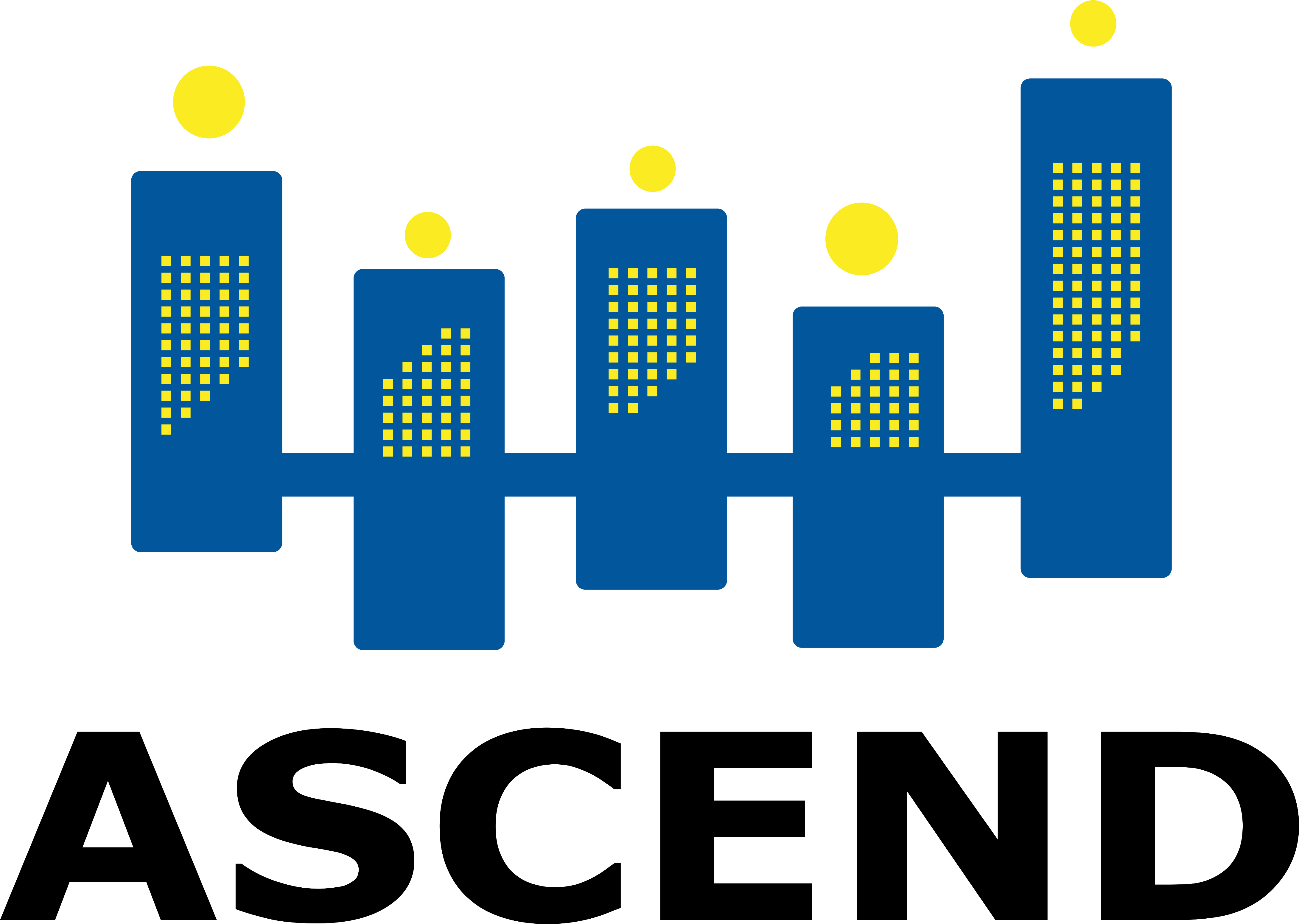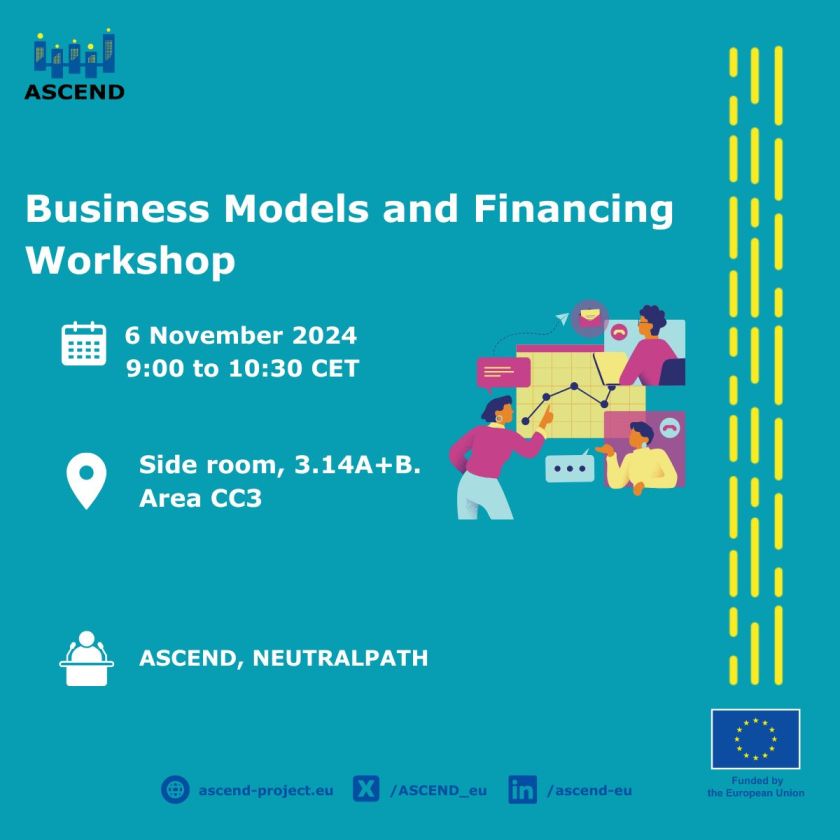On 6 November 2024, ASCEND, in collaboration with NEUTRALPATH, hosted the Business Models and Financing Workshop at SCEWC 2024, bringing together leading experts to explore innovative business models for energy communities across Europe. The session featured case studies from the ASCEND multiplier city Porto and lighthouse city Lyon, as well as NEUTRALPATH cities Dresden and Zaragoza, and from the Scalable Cities Task Group on Energy Communities offering practical examples of successful energy community models.
Selina Lorenz, Research Associate at St. Gallen University, presented key insights from the Business Models Workshop held in Porto in July 2024. The workshop brought together a variety of stakeholders to explore the critical components of developing financially viable and scalable business models for energy communities. The session emphasised the importance of understanding the diverse needs of different cities and regions when designing these models to ensure their adaptability and success across various contexts.
Baptiste Mougeot, Project Manager from SPL Lyon Confluence, provided an overview of the business case for the Confluence area, a former industrial site in Lyon, an ASCEND lighthouse city. The presentation focused on business models that aim to retain the value of photovoltaic energy production within the local community through collective self-consumption operations. Two key use cases were shared, including "Ydeal," which allows local residents to directly benefit from renewable energy without selling it to the grid, highlighting the value of community-driven energy solutions in revitalising urban spaces.
Adeeb Sidani, Project Manager at Porto Digital, shared insights on Porto, an ASCEND multiplier city by looking at an energy community that integrated seven social housing units into a broader energy community in a more affluent area. The presentation highlighted the tailored solution packages developed to address the specific challenges faced by these diverse neighbourhoods, underscoring the importance of adapting business models to the unique characteristics of each community and ensuring inclusive, equitable energy access.
Miguel Zarzuela, EU Project Coordinator at CIRCE from the NEUTRALPATH Project provided an overview of Zaragoza's Positive Clean Energy District, which includes two public social rental housing developments and four public buildings. The project integrates extensive refurbishment with cutting-edge technologies, such as heat pumps, groundwater-based heating and cooling systems, photovoltaic panels, and battery management using bidirectional chargers. The city plays a key role as a financial supporter and helps to navigate the complex regulatory frameworks to ensure the project's long-term success. Thanks to these innovations, the initiative has generated a 15-25% reduction in electricity costs, highlighting its significant potential for energy savings.
The findings from the Scalable Cities Roadshow in Kladno, Czech Republic were also presented and provided significant insights into the development of viable business models for energy communities. Presentations by Paula Ferrando, Project Manager at GNE Finance, and David Skorna, Energy Expert from the City of Kladno, highlighted the critical role of cities in advancing energy community initiatives. Among the key challenges discussed were the high costs and insufficient infrastructure for energy storage, with a detailed report on these findings expected to be published soon.
The engaging and diverse examples presented during the workshop highlighted that flexible and innovative business models are essential for advancing the development of Energy Communities, with a clear emphasis on the need for robust financial schemes, digital tools, and strong stakeholder engagement to effectively support and scale these initiatives.

